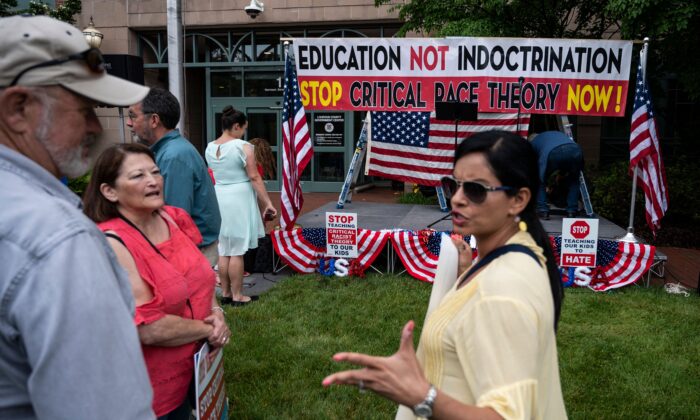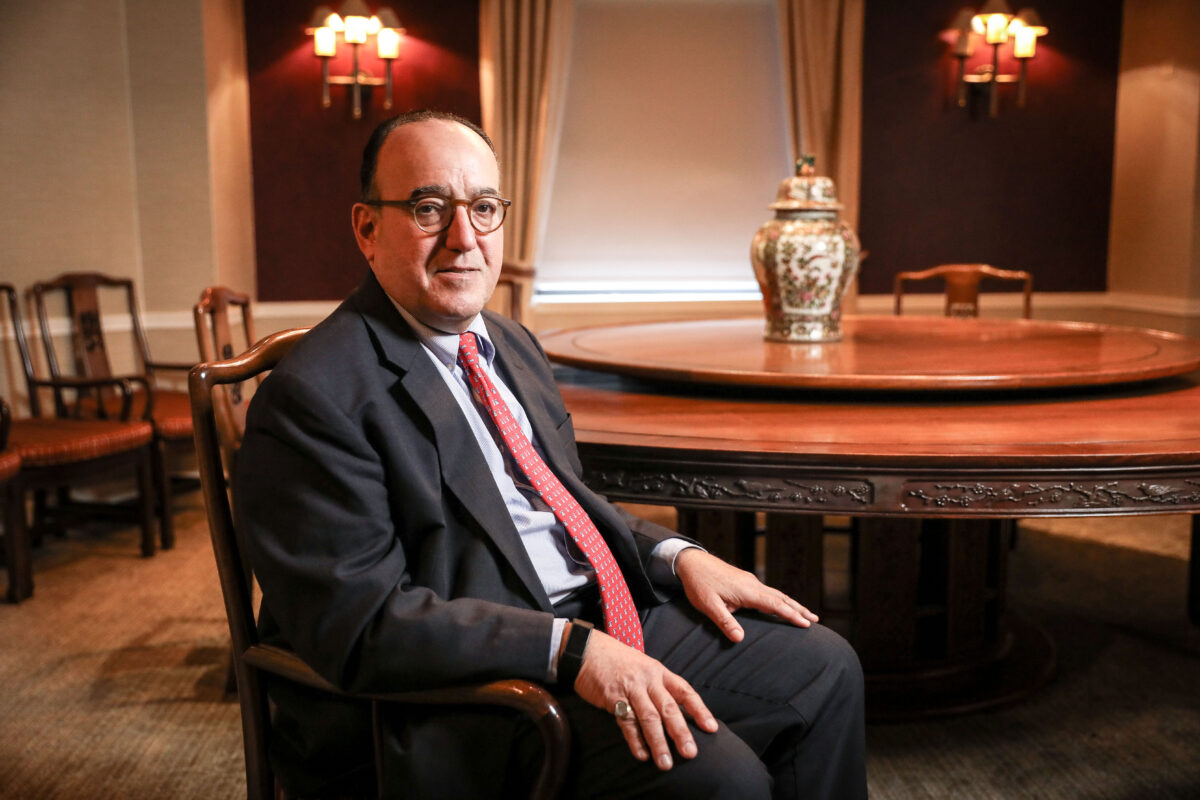National Teachers’ Union to ‘Research’ Organizations that Oppose Their Teachers’ ‘Anti-Racist’ Work
Masooma Haq writes in the Epoch Times:

The National Education Association (NEA) announced a plan to increase resources toward collecting information about organizations that oppose curriculum or training based on the quasi-Marxist critical race theory (CRT) model, which the NEA calls “anti-racist” work.
“NEA will research the organizations attacking educators doing anti-racist work and/or use the research already done and put together a list of resources and recommendations for state affiliates, locals, and individual educators to utilize when they are attacked,” the amendment reads on NEA’s website.
“The research, resources, and recommendations will be shared with members through NEA’s social media, an article in NEA Today, and a recorded virtual presentation/webinar,” the announcement continues. “The attacks on anti-racist teachers are increasing, coordinated by well-funded organizations such as the Heritage Foundation.”
The Heritage Foundation’s Mike Gonzalez on Friday addressed the NEA’s plan to go after the foundation over of its vocal opposition to CRT. “I dedicate this column to the @NEAToday,” he wrote on Twitter.

Last year, Gonzalez co-authored an extensive report on CRT with Jonathan Butcher. The report is called “Critical Race Theory, the New Intolerance, and Its Grip on America.”
“Racism and intolerance should have no place in America, but CRT is more than just a philosophical objection to discrimination,” Gonzalez and Butcher write. “When followed to its logical conclusion, CRT is destructive and rejects the fundamental ideas on which our constitutional republic is based.”
Christopher Rufo of The Manhattan Institute, another target of the NEA due to his prominent role in the fight against critical race theory and related models being taught in schools, responded to the NEA’s plan via Twitter on Thursday.
The national teachers union is funding an attack machine against me, @Gundisalvus, and our allies,” he wrote. “We were born for this fight—and will show no mercy to the corrupt ideologues who are ruining American education. Swords up!”
The NEA stated in its announcement that it will increase funding for this data collection effort by an $56,500.
Keisha N. Blain, co-author of Ibram X. Kendi’s book “Four Hundred Souls: A Community History of African America, 1619-2019“ and advocate for the implementation of CRT throughout American institutions, explained CRT in an interview.
“So, critical race theory I think is important for helping us understand race as a social construction, but also understanding how race and racism permeates the law, as well as how it permeates various aspects of society and, you know, the way to fix a problem is to confront it, not to run away from it, and so when we first talk about racism and we say that we want to dismantle oppressive systems,” Blain told MSNBC on June 24. “The first way to do that is to recognize what the problems are and critical race theory will help you confront what the problems are, will help you see how racism functions in American society, and then you’ll be able to participate in the process of dismantling these structures and making sure that we create a more democratic and inclusive society.”

A growing number of American parents are getting together to block the spread of CRT in schools due to its Marxist roots. They say the doctrine is a primary culprit in creating a racist environment, exacerbating the problems it claims to ameliorate. School officials have responded with denying that they use CRT or have simply not responded.
CRT recasts America’s history as a struggle between “oppressors” (white people) and the “oppressed” (everybody else), similar to Marxism’s reduction of human history to a struggle between the “bourgeoisie” and the “proletariat.” It labels institutions that emerged in majority-white societies as “systemically” or “structurally” racist.
CRT, which has for years been spreading throughout academia, entertainment, government, schools, and corporations, went largely unnoticed by parents due to its being spread under other names, such as “equity,” “anti-racist,” or “culturally responsive” initiatives. It has spawned an industry of speakers, trainers, and consultants who get paid to diagnose an organization as “systemically racist,” prescribe CRT-based initiatives as the remedy, and then help implement it over the years to come.
In June, the NEA adopted new provisions that support CRT.
According to the NEA measure, it will fund campaigns that “result in increasing the implementation of culturally responsive education, critical race theory, and ethnic (Native people, Asian, Black, Latin(o/a/x), Middle Eastern, North African, and Pacific Islander) Studies curriculum in pre-K-12 and higher education.”
In addition, this effort aims to “eradicate racist laws, policies, and practices, the over-criminalization of communities, students, and families of Native people and people of color, as well as the criminalization of poverty.”
The NEA did not respond to a request for comment on its efforts to collect information on organizations that oppose CRT in schools.
The belief in the existence of “systemic racism” is usually attributed to the disparate outcomes for different groups, such as lower average test scores or more detentions for black students.
Scholars who oppose CRT have pointed out that the argument is specious.
“Every system you could possibly think of produces some kind of racial or sexual or class discrepancy,” said Wilfred Reilly, an associate professor of political science at Kentucky State University who specializes in empirically testing political claims. “And this allows the radicals to be radicals eternally, and to claim that everything is racist.”
Peter Svab contributed to this report.